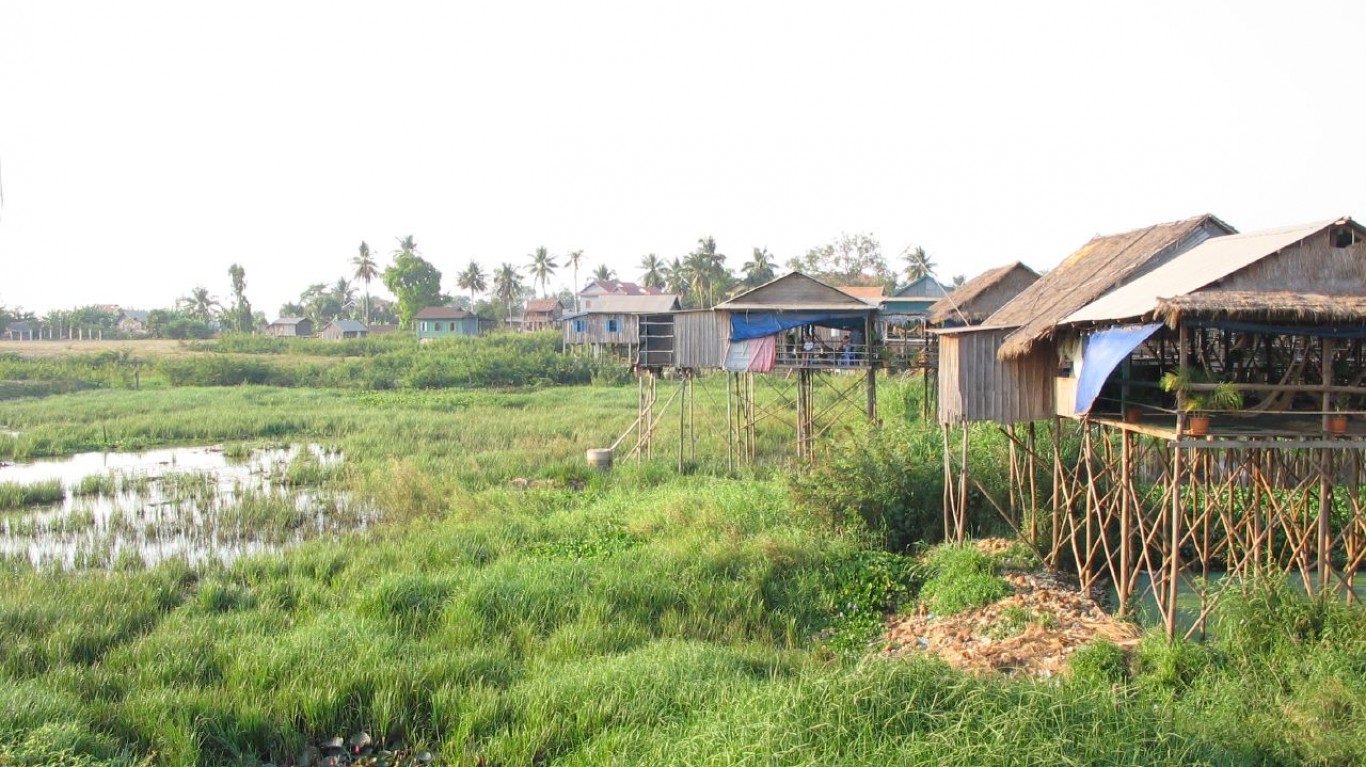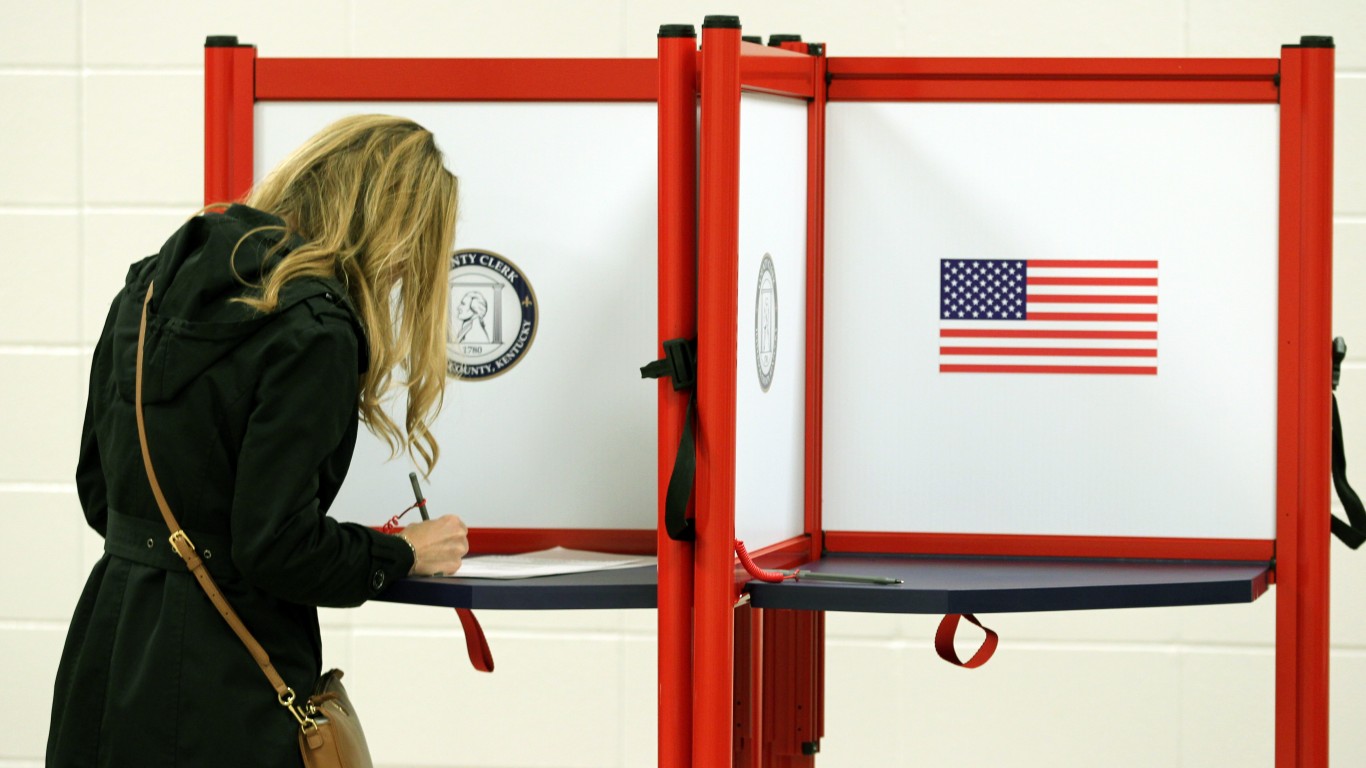
Corruption can come in the form of bribery, nepotism, attacks on the press, bureaucratic red tape, inadequate financial disclosure, exploitation of one’s office, and much more. These improper actions do not just provide an unfair advantage to those in power, but they also hamstring the entire economy and way of life in a given area.
To determine the most corrupt country in the world, 24/7 Wall St. reviewed data from Transparency International’s Corruption Perceptions Index. Countries were ranked based on their corruption index score, a measure reflecting perceived levels of public sector corruption ranging from 0 (highly corrupt) to 100 (very clean).
Transparency International calculates index scores using data from 13 different surveys. Each country considered must have at least three sources assessing it. Population data came from the World Bank and is for 2020.
Overall, the nations of the world have done little to improve the perception of corruption in their public sector in recent years. All across the globe, countries have cracked down on civil liberties and removed accountability measures designed to keep public sector corruption in check. Even in relatively open countries, accountability for major issues like COVID-19 responses has been limited.
In corrupt countries, it can be very difficult for average citizens to gain access to the financial resources they need to escape poverty. High levels of corruption can hamper economic growth and restrict access to education, which can make it more difficult for lower-income residents to lift themselves out of poverty. This has been shown to increase the gap between the rich and the poor. (These are the countries with the worst wealth inequality.)
The most corrupt country in the world is South Sudan with a corruption perceptions index of 11 out of 100. The sub-Saharan country has a population of 11.19 million. Syria is next with a score of 13. To compare, the highest score is 88, which three countries achieved, while the U.S.’s score is 67, ranking 27th in the world. (Many of the corrupt countries are also among the poorest countries in the world.)
Click here to see the mot corrupt countries in the world
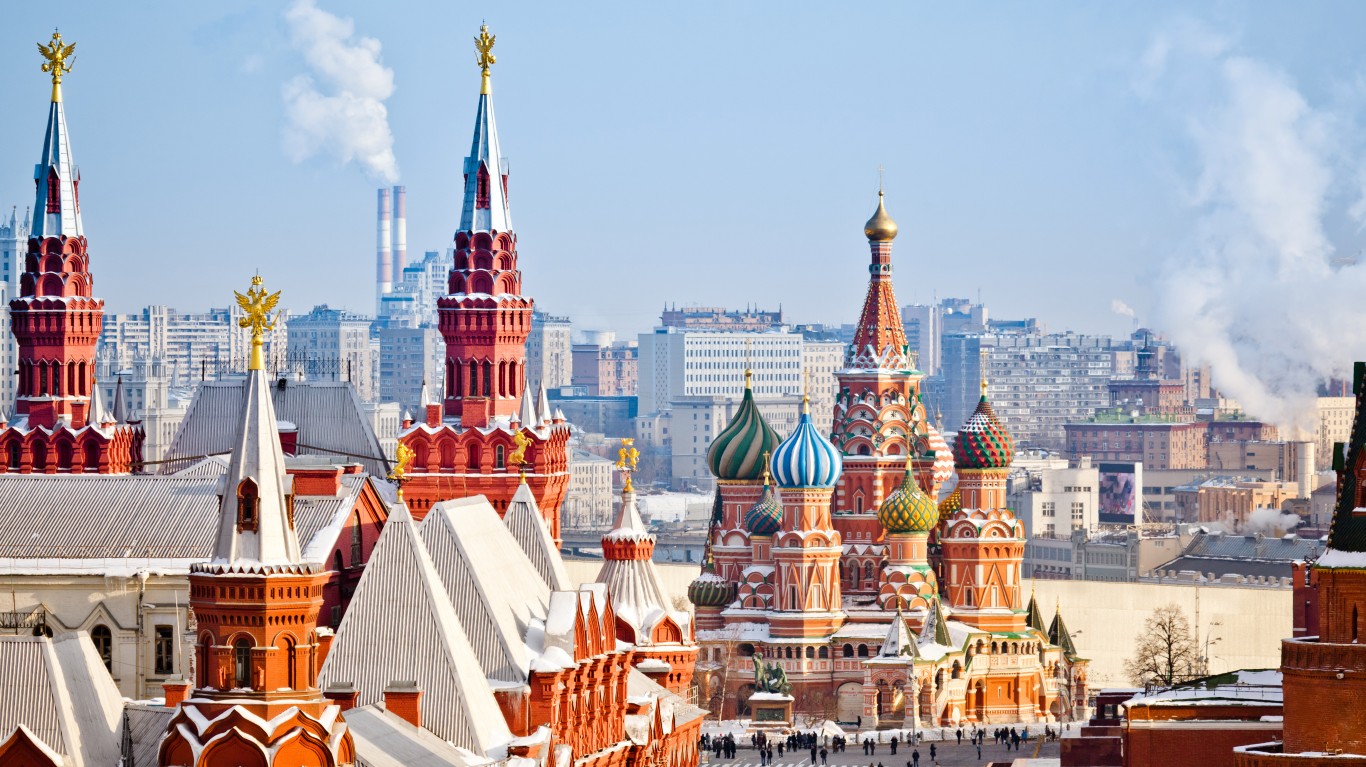
45. Russia
> Corruption perceptions index: 29/100
> Total population: 144.10 million
> Region: Eastern Europe & Central Asia
[in-text-ad]
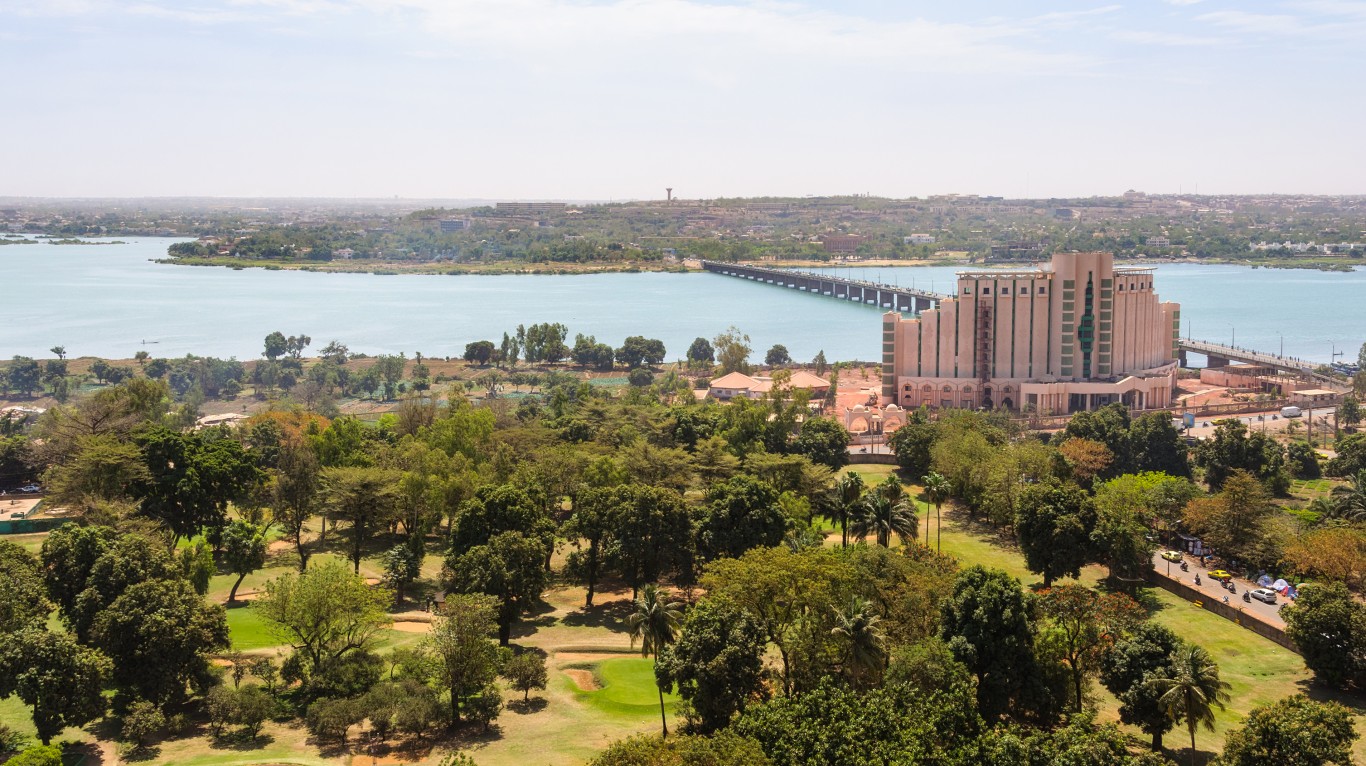
44. Mali
> Corruption perceptions index: 29/100
> Total population: 20.25 million
> Region: Sub-Saharan Africa
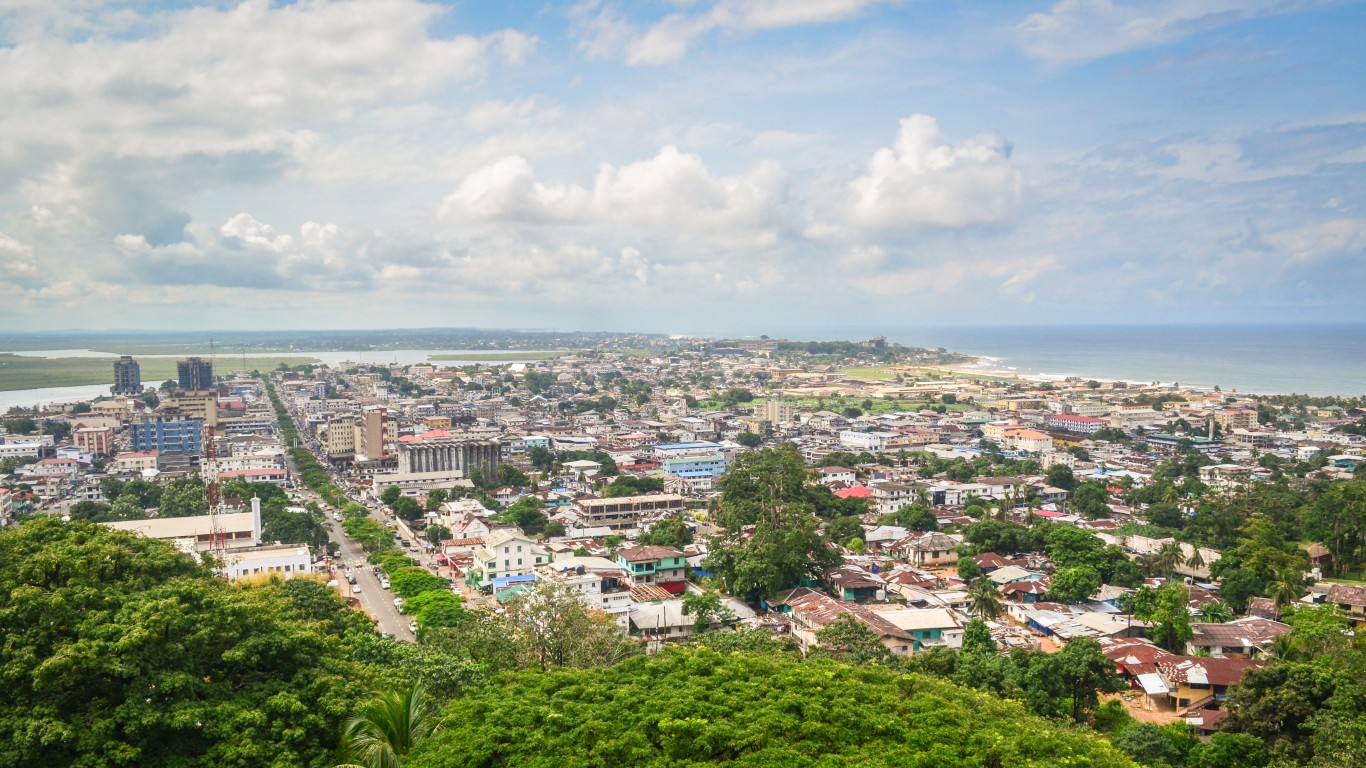
43. Liberia
> Corruption perceptions index: 29/100
> Total population: 5.06 million
> Region: Sub-Saharan Africa
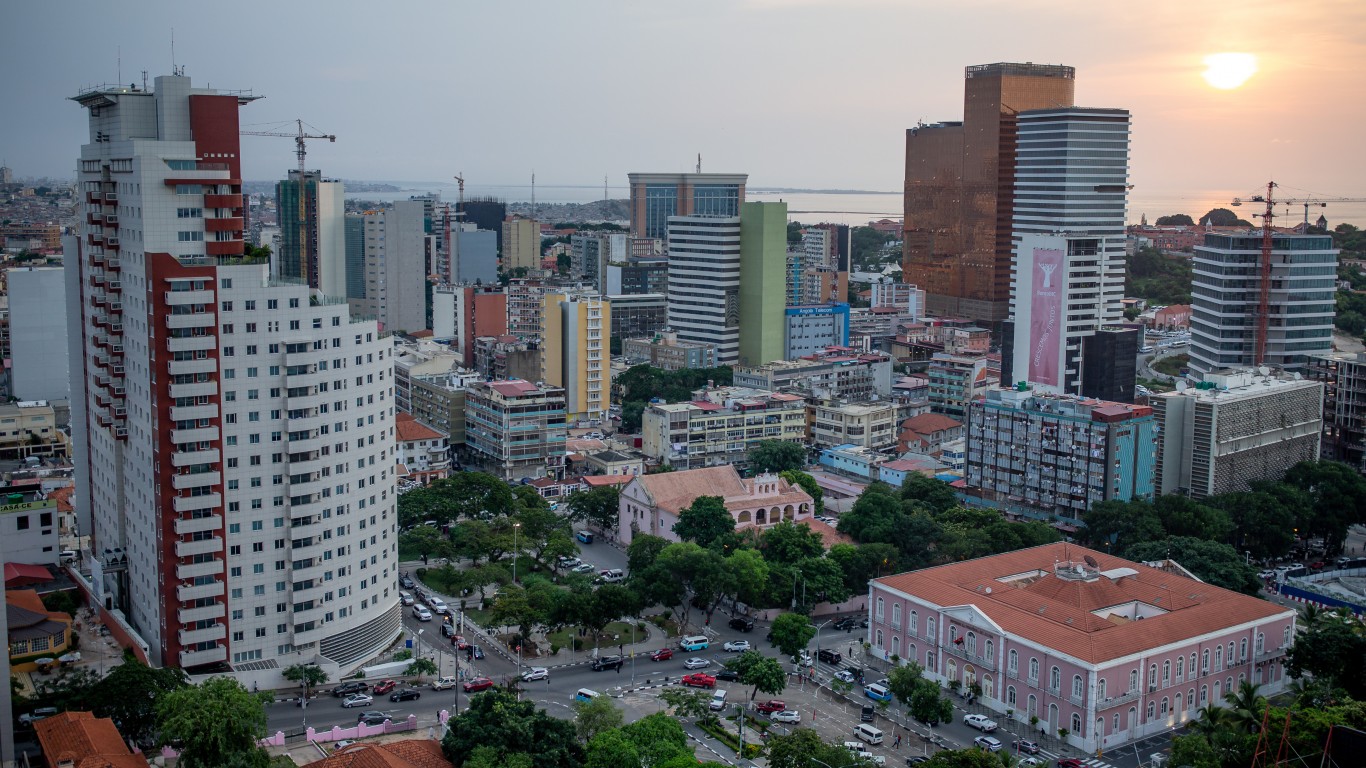
42. Angola
> Corruption perceptions index: 29/100
> Total population: 32.87 million
> Region: Sub-Saharan Africa
[in-text-ad-2]
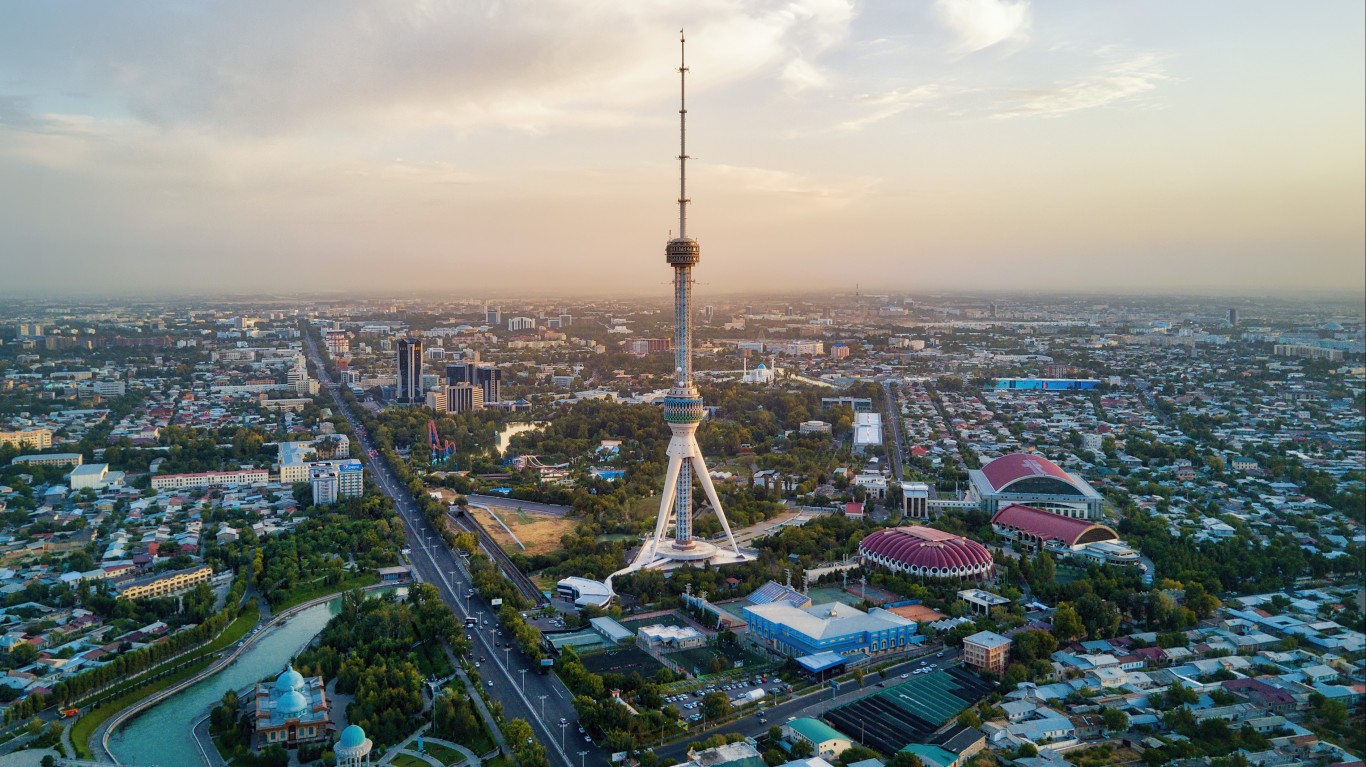
41. Uzbekistan
> Corruption perceptions index: 28/100
> Total population: 34.23 million
> Region: Eastern Europe & Central Asia
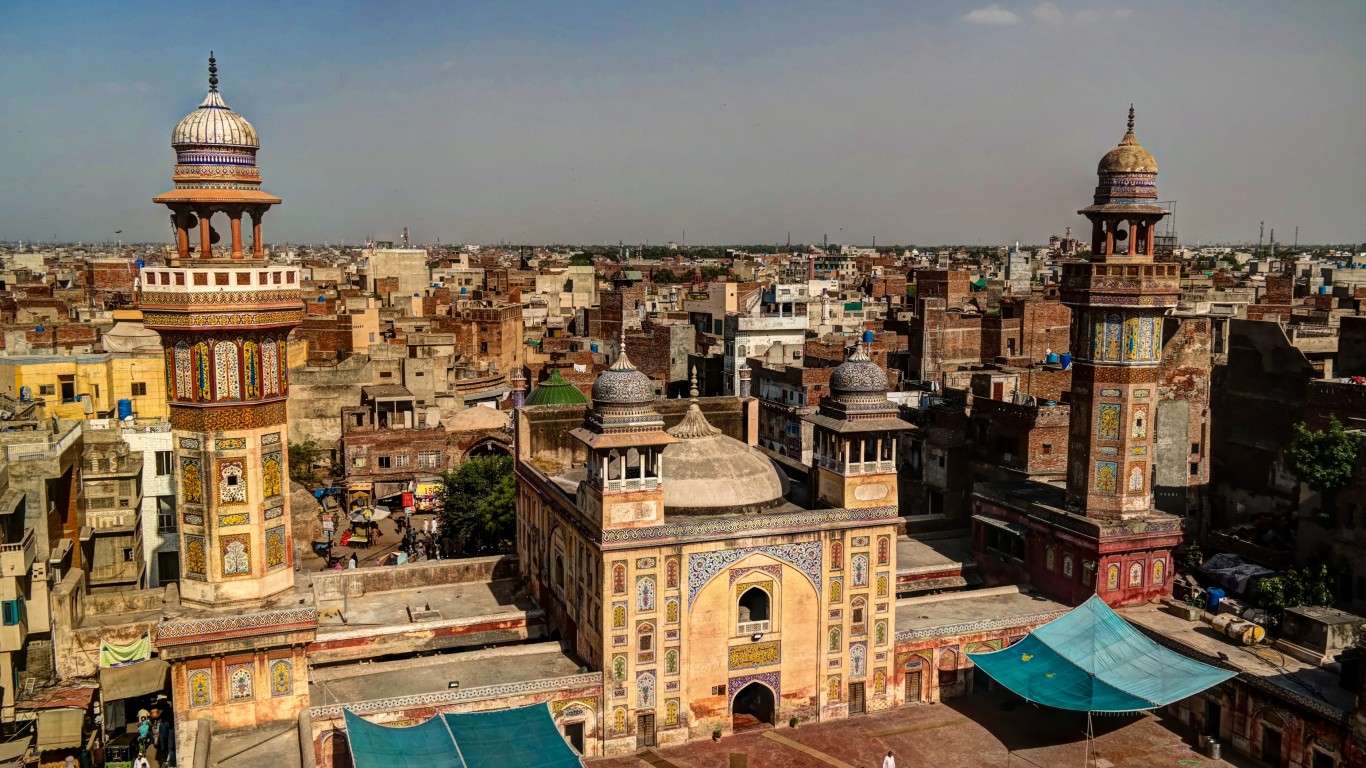
40. Pakistan
> Corruption perceptions index: 28/100
> Total population: 220.89 million
> Region: Asia & the Pacific
[in-text-ad]

39. Myanmar
> Corruption perceptions index: 28/100
> Total population: 54.41 million
> Region: Asia & the Pacific
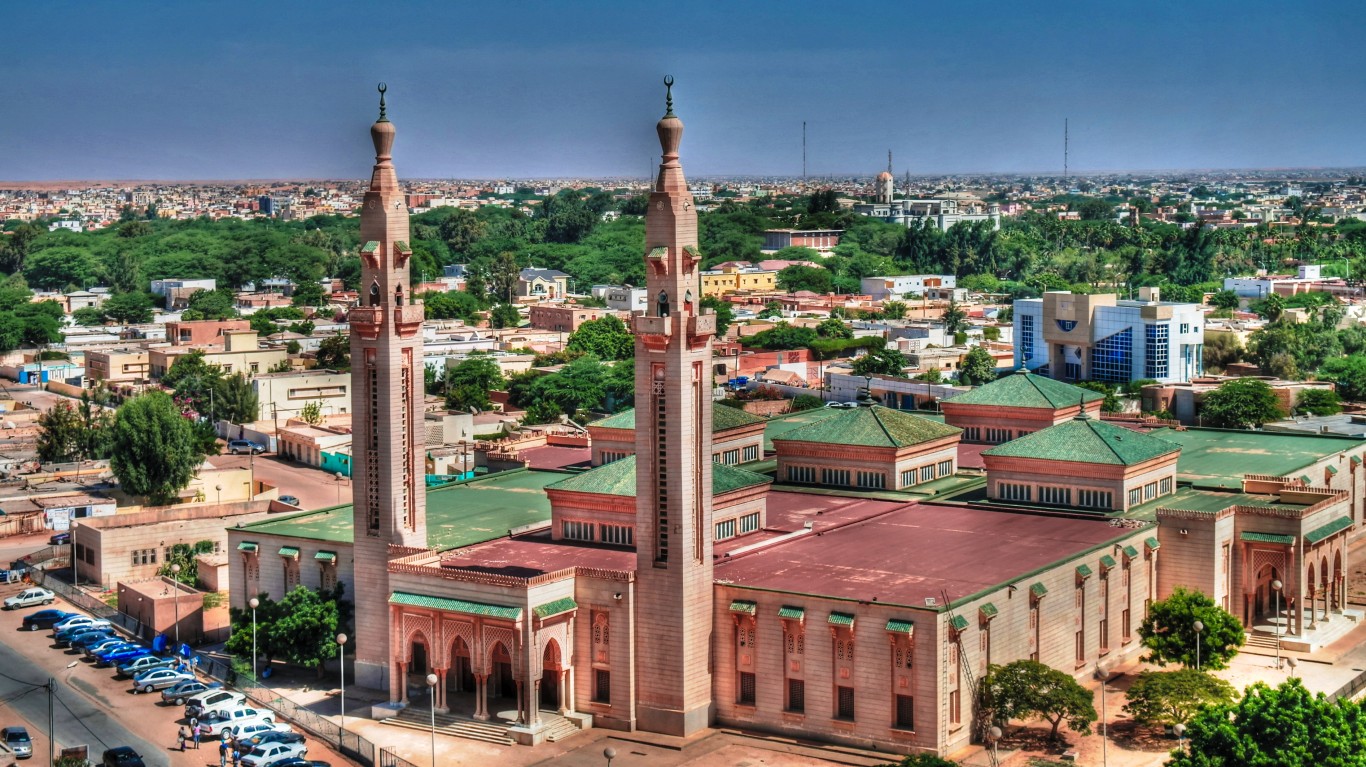
38. Mauritania
> Corruption perceptions index: 28/100
> Total population: 4.65 million
> Region: Sub-Saharan Africa

37. Uganda
> Corruption perceptions index: 27/100
> Total population: 45.74 million
> Region: Sub-Saharan Africa
[in-text-ad-2]

36. Kyrgyzstan
> Corruption perceptions index: 27/100
> Total population: 6.59 million
> Region: Eastern Europe & Central Asia
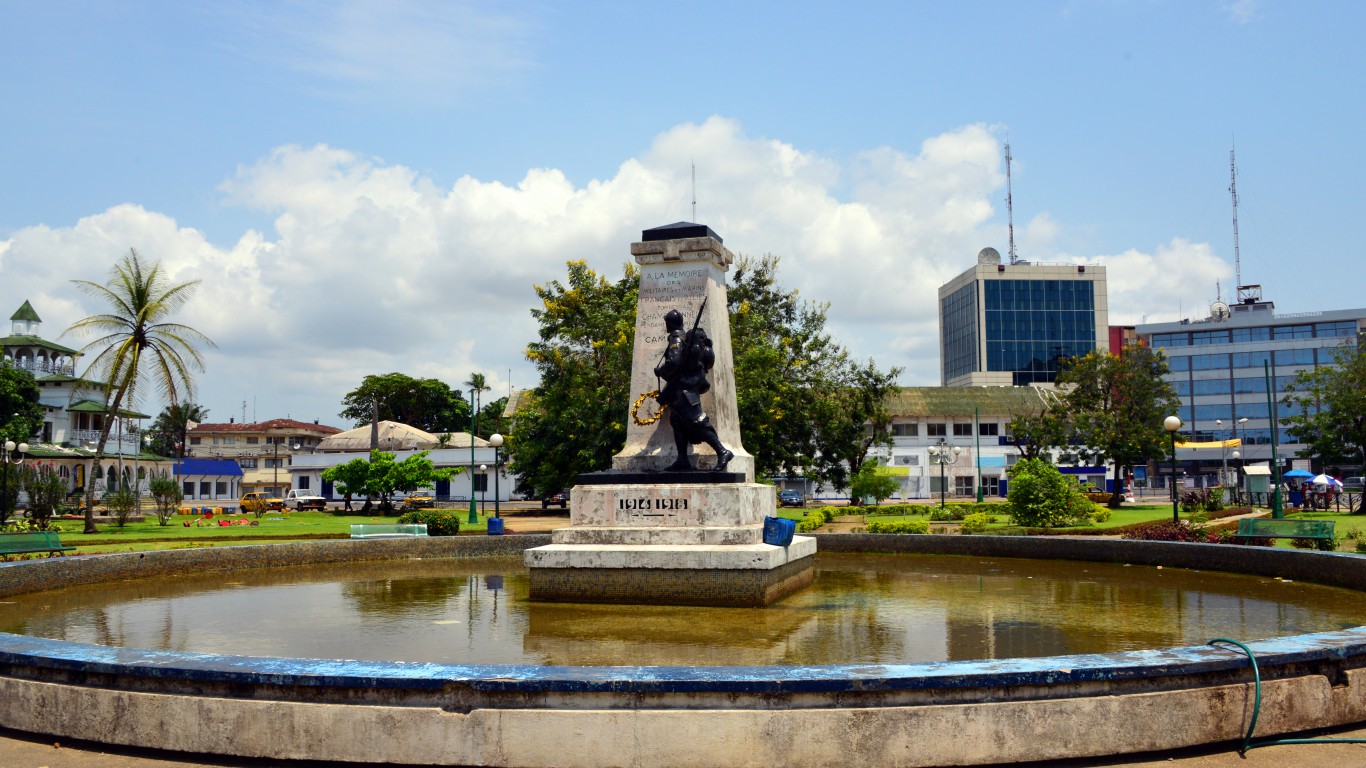
35. Cameroon
> Corruption perceptions index: 27/100
> Total population: 26.55 million
> Region: Sub-Saharan Africa
[in-text-ad]
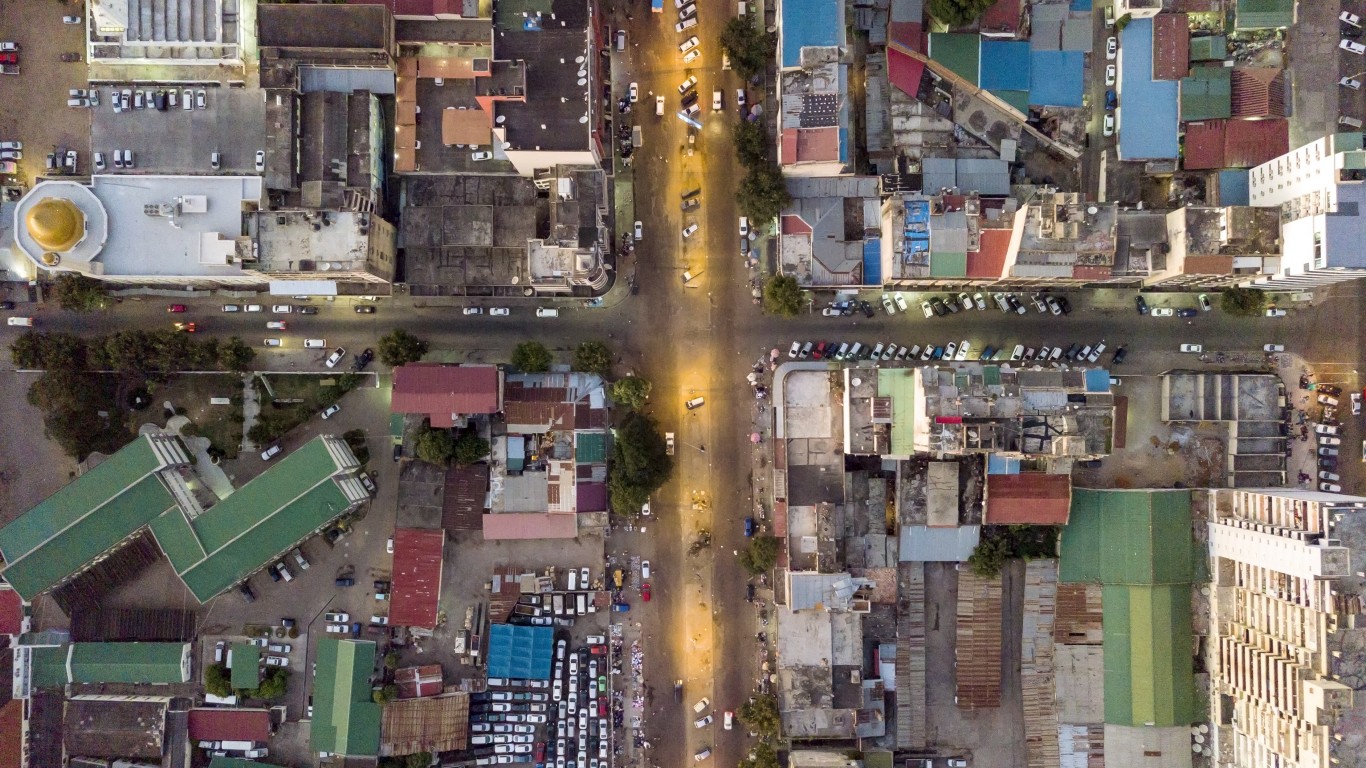
34. Mozambique
> Corruption perceptions index: 26/100
> Total population: 31.26 million
> Region: Sub-Saharan Africa
33. Madagascar
> Corruption perceptions index: 26/100
> Total population: 27.69 million
> Region: Sub-Saharan Africa

32. Bangladesh
> Corruption perceptions index: 26/100
> Total population: 164.69 million
> Region: Asia & the Pacific
[in-text-ad-2]
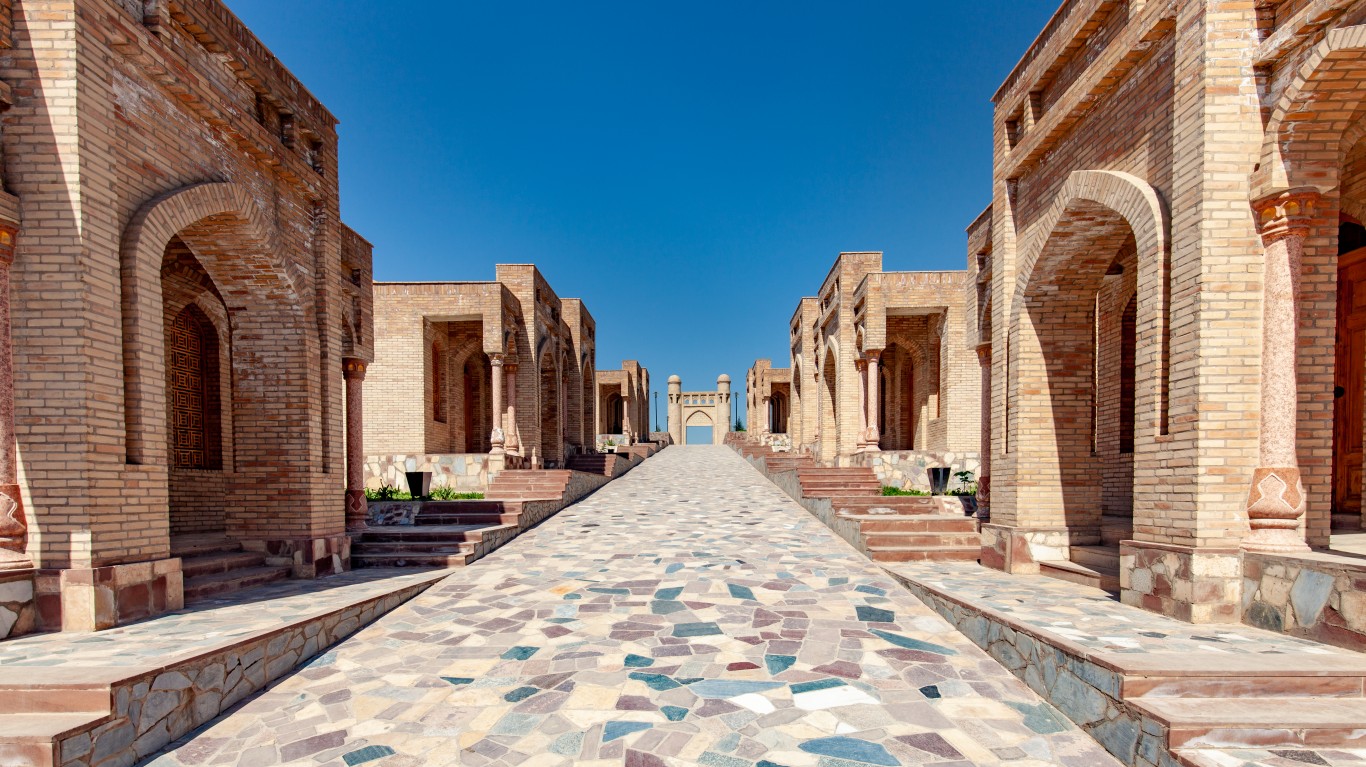
31. Tajikistan
> Corruption perceptions index: 25/100
> Total population: 9.54 million
> Region: Eastern Europe & Central Asia
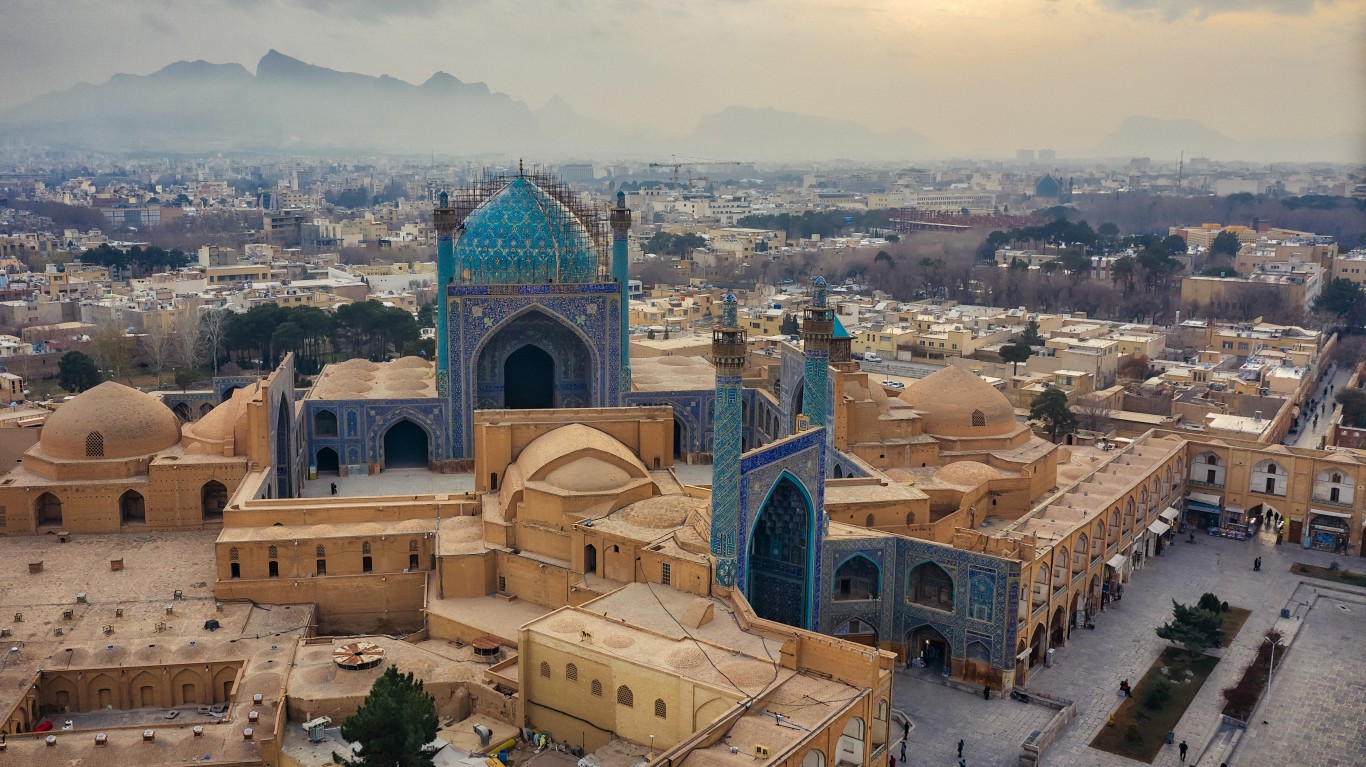
30. Iran
> Corruption perceptions index: 25/100
> Total population: 83.99 million
> Region: Middle East & North Africa
[in-text-ad]
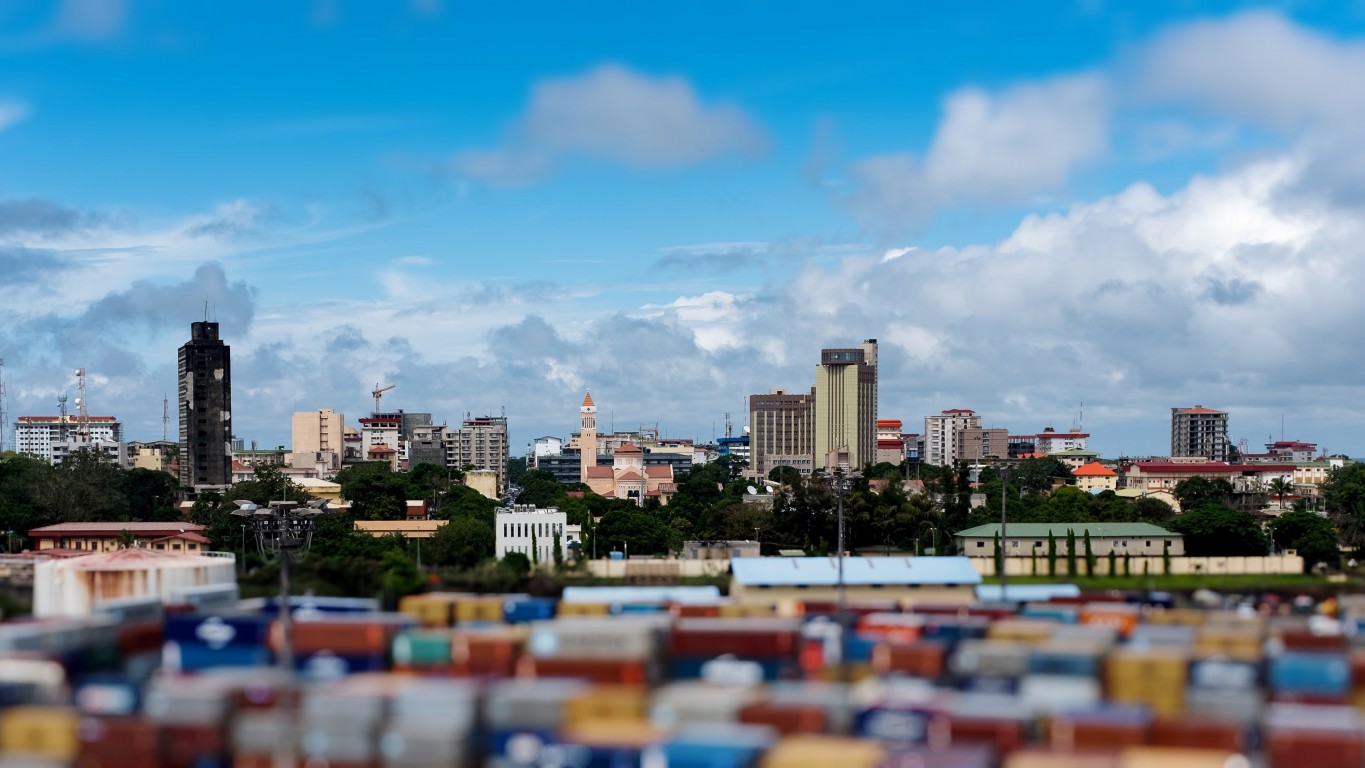
29. Guinea
> Corruption perceptions index: 25/100
> Total population: 13.13 million
> Region: Sub-Saharan Africa
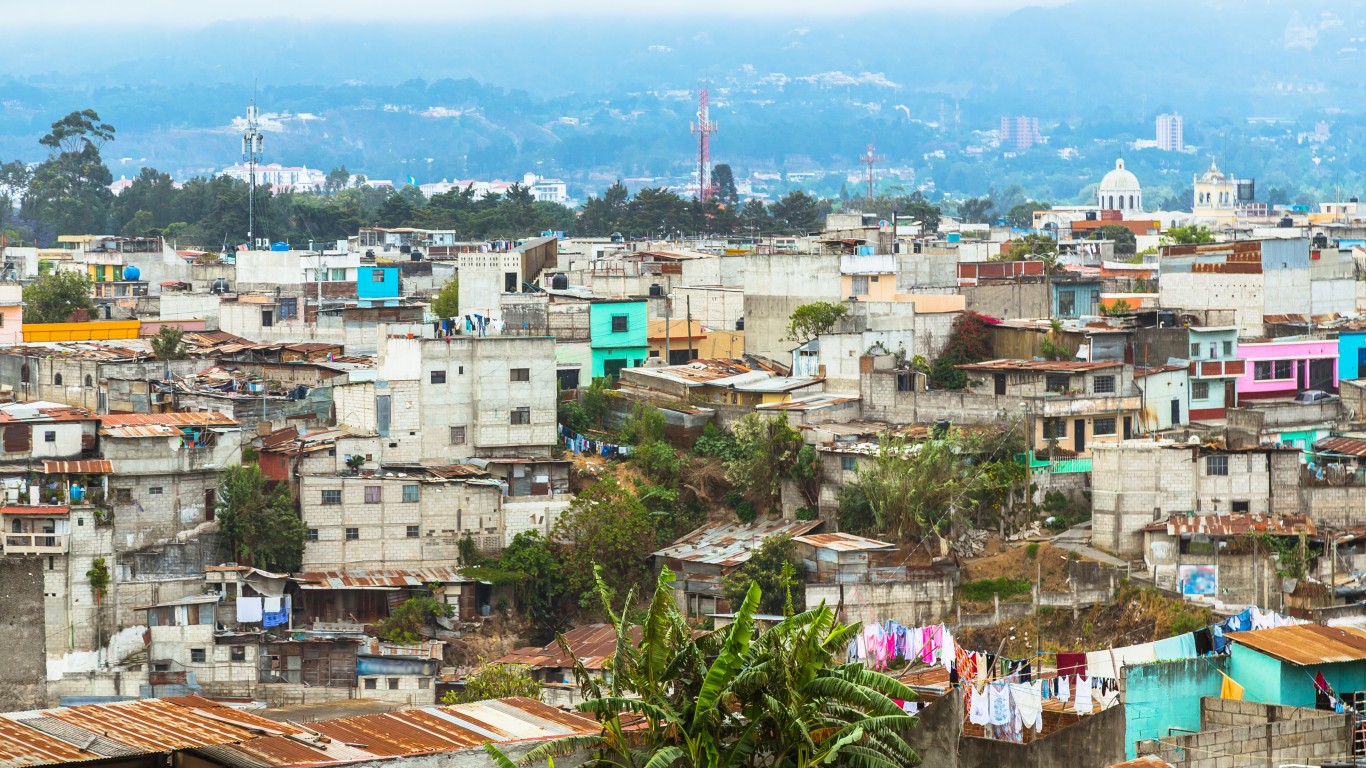
28. Guatemala
> Corruption perceptions index: 25/100
> Total population: 16.86 million
> Region: The Americas

27. Central African Republic
> Corruption perceptions index: 24/100
> Total population: 4.83 million
> Region: Sub-Saharan Africa
[in-text-ad-2]
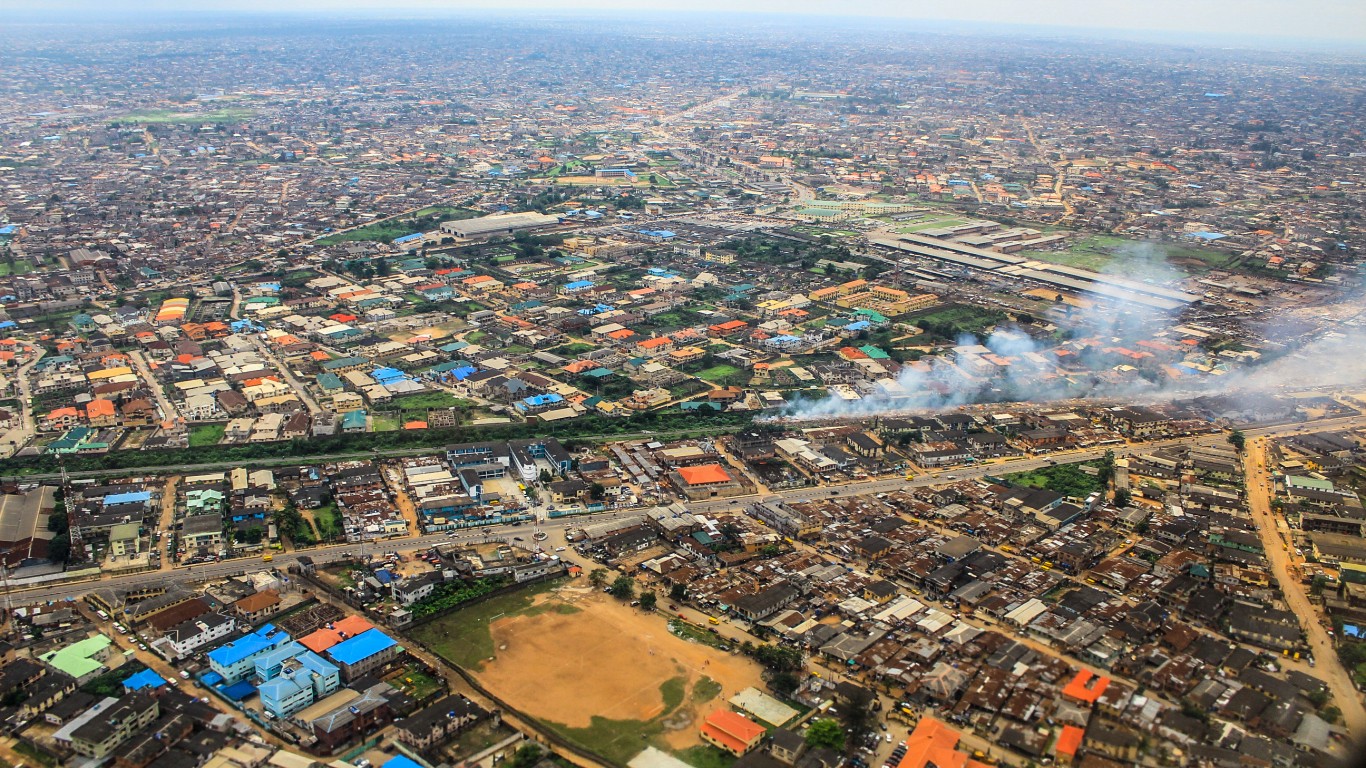
26. Nigeria
> Corruption perceptions index: 24/100
> Total population: 206.14 million
> Region: Sub-Saharan Africa

25. Lebanon
> Corruption perceptions index: 24/100
> Total population: 6.83 million
> Region: Middle East & North Africa
[in-text-ad]
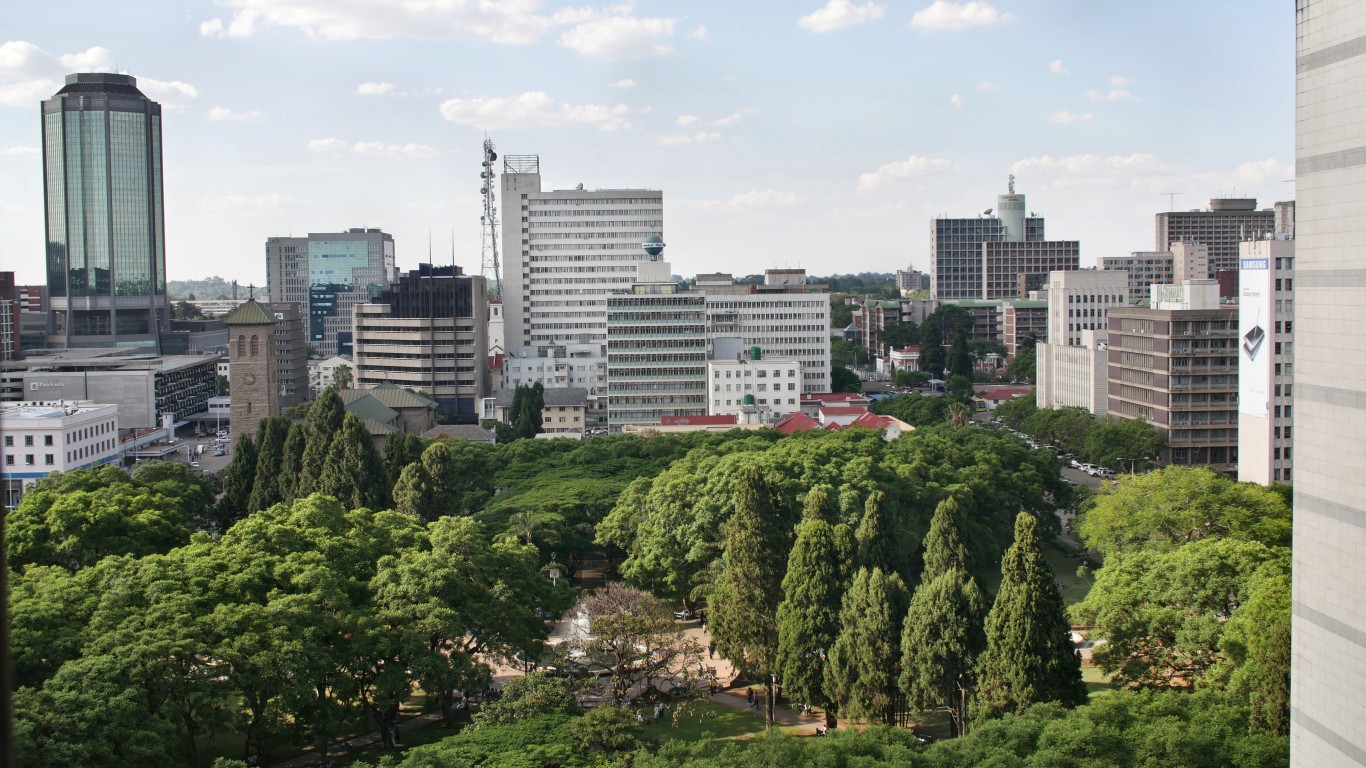
24. Zimbabwe
> Corruption perceptions index: 23/100
> Total population: 14.86 million
> Region: Sub-Saharan Africa
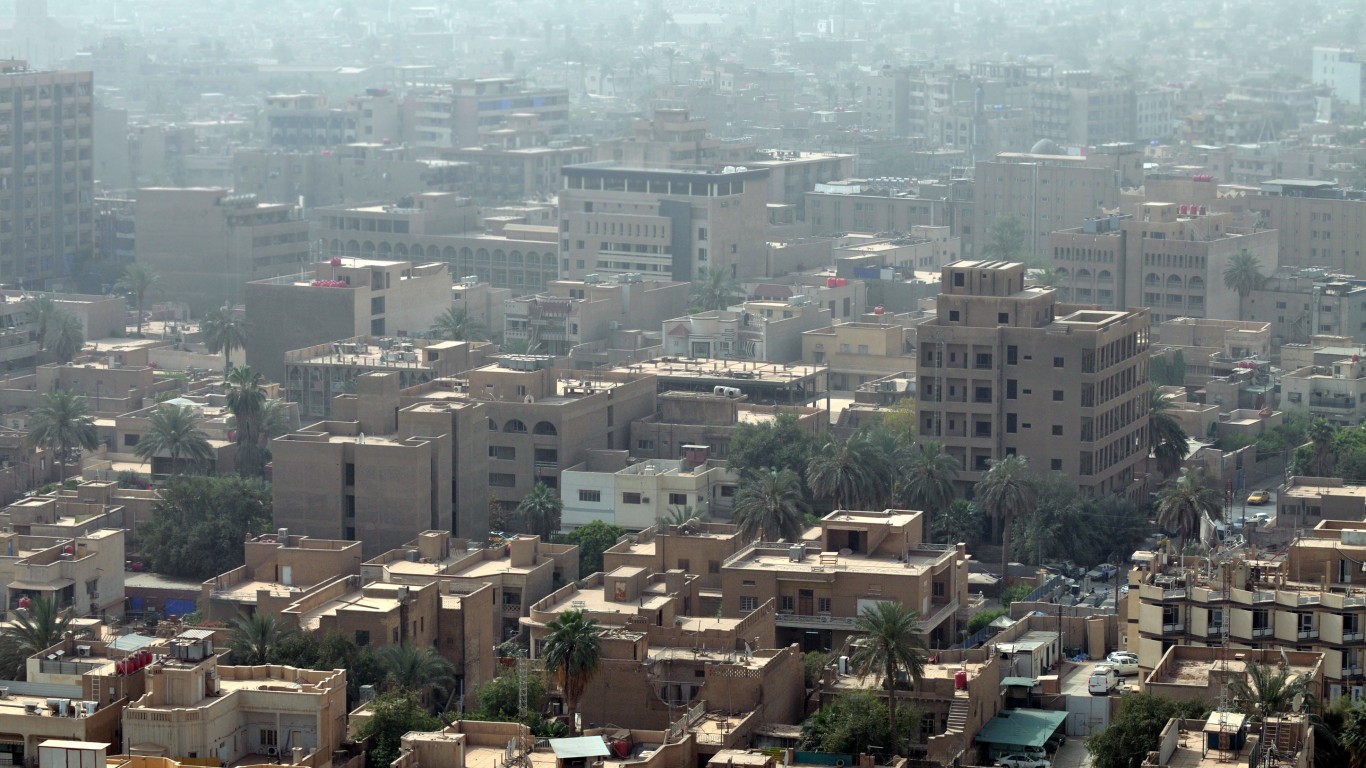
23. Iraq
> Corruption perceptions index: 23/100
> Total population: 40.22 million
> Region: Middle East & North Africa

22. Honduras
> Corruption perceptions index: 23/100
> Total population: 9.90 million
> Region: The Americas
[in-text-ad-2]
21. Cambodia
> Corruption perceptions index: 23/100
> Total population: 16.72 million
> Region: Asia & the Pacific
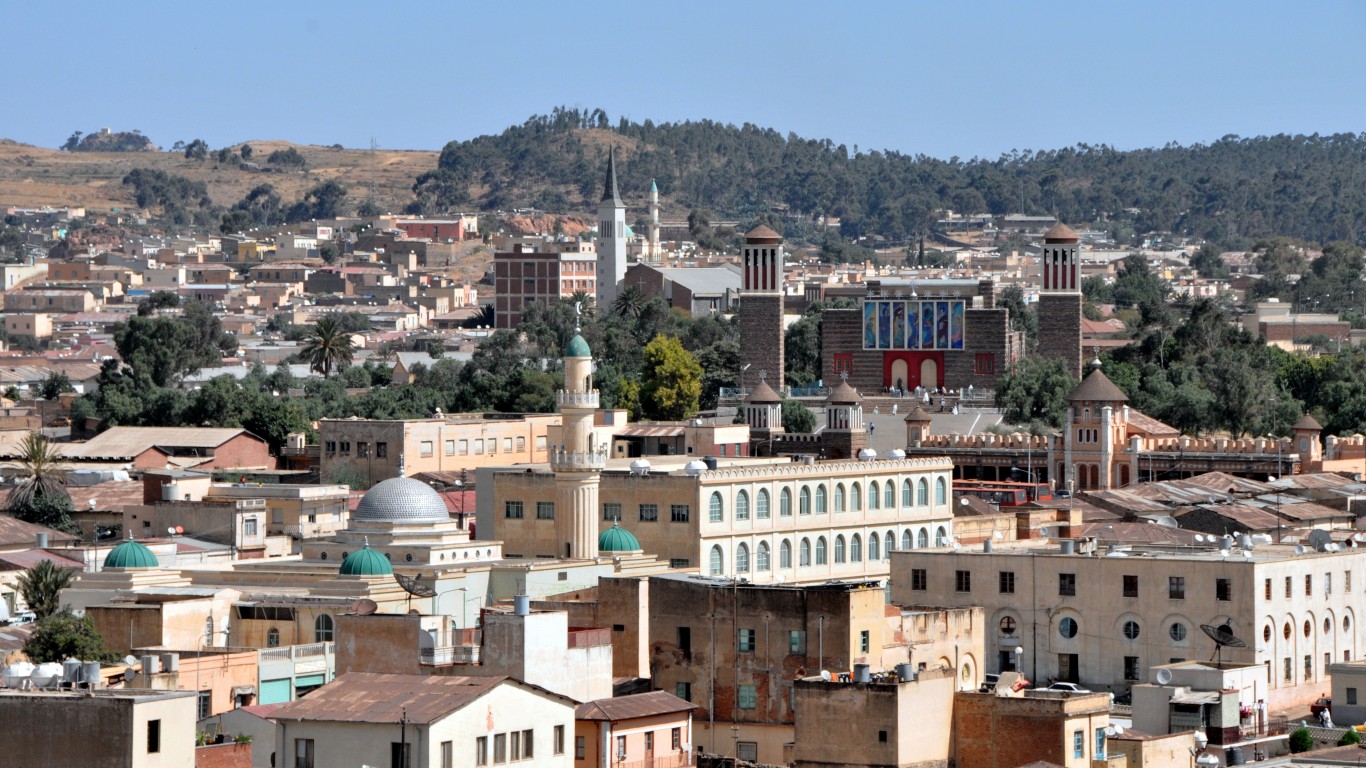
20. Eritrea
> Corruption perceptions index: 22/100
> Total population: 6.15 million
> Region: Sub-Saharan Africa
[in-text-ad]
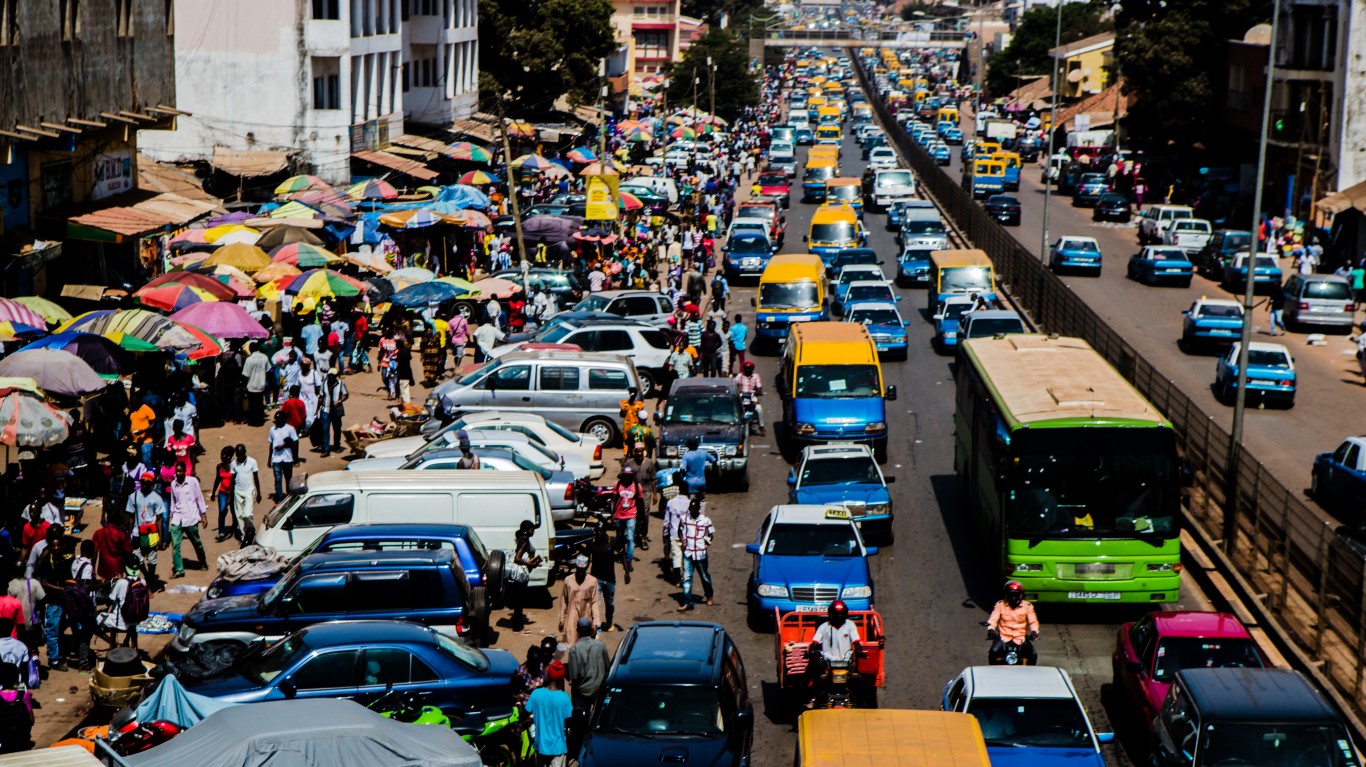
19. Guinea Bissau
> Corruption perceptions index: 21/100
> Total population: 1.97 million
> Region: Sub-Saharan Africa

18. Congo
> Corruption perceptions index: 21/100
> Total population: 5.52 million
> Region: Sub-Saharan Africa

17. Sudan
> Corruption perceptions index: 20/100
> Total population: 43.85 million
> Region: Sub-Saharan Africa
[in-text-ad-2]

16. Nicaragua
> Corruption perceptions index: 20/100
> Total population: 6.62 million
> Region: The Americas
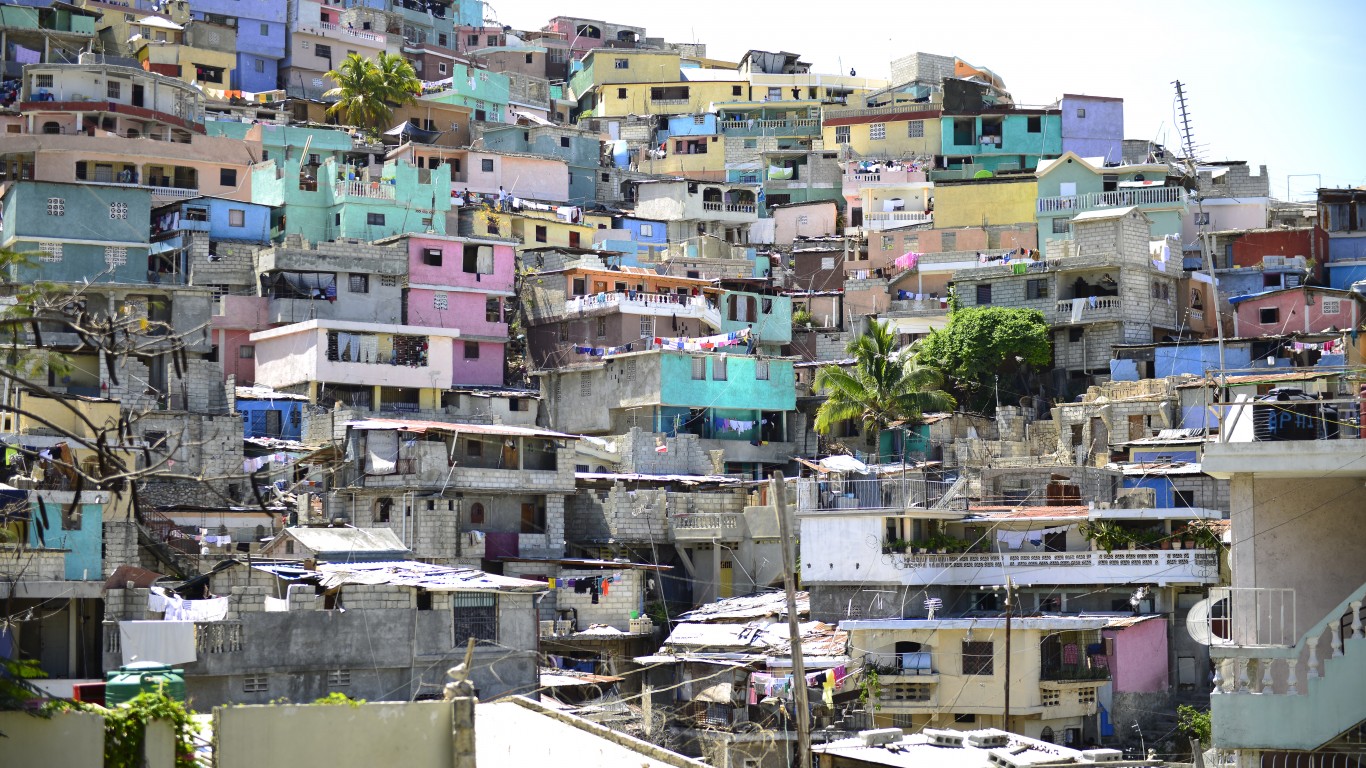
15. Haiti
> Corruption perceptions index: 20/100
> Total population: 11.40 million
> Region: The Americas
[in-text-ad]

14. Comoros
> Corruption perceptions index: 20/100
> Total population: 869,595
> Region: Sub-Saharan Africa

13. Chad
> Corruption perceptions index: 20/100
> Total population: 16.43 million
> Region: Sub-Saharan Africa
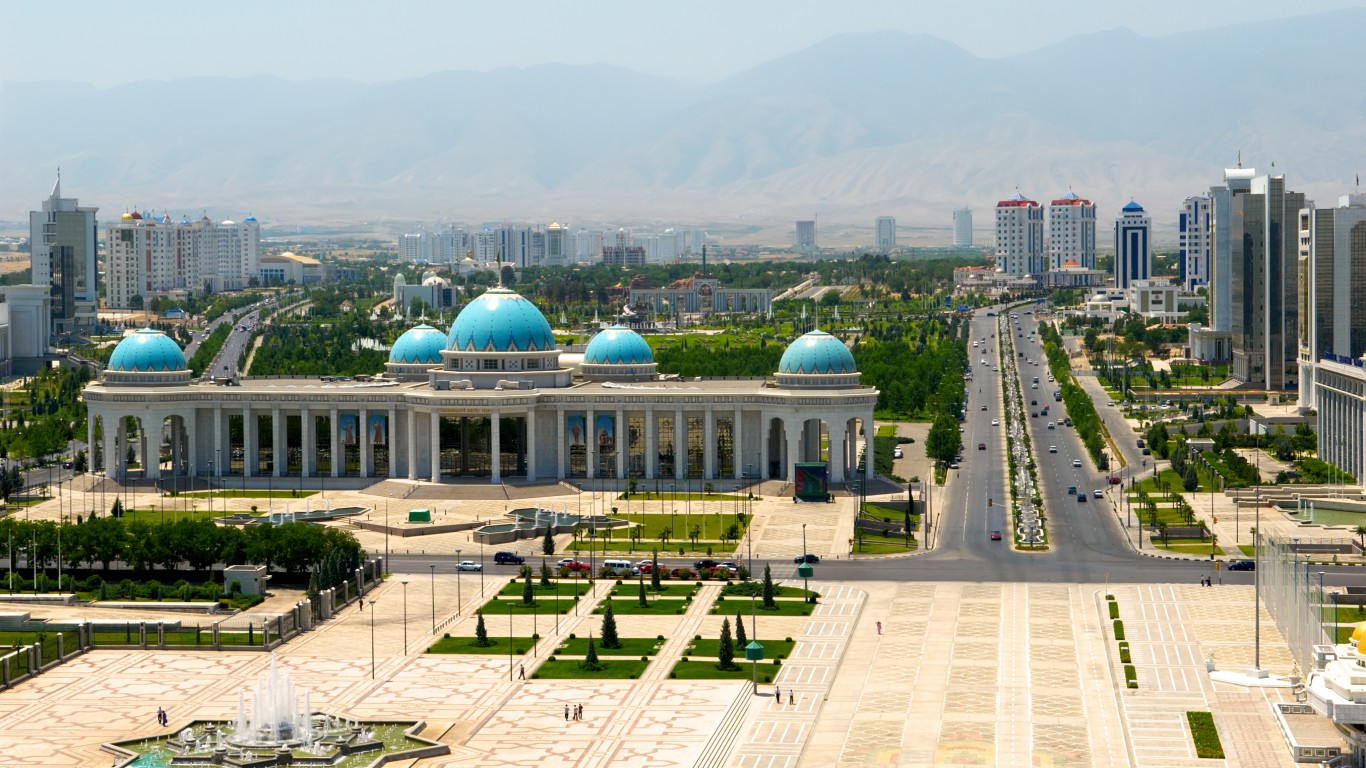
12. Turkmenistan
> Corruption perceptions index: 19/100
> Total population: 6.03 million
> Region: Eastern Europe & Central Asia
[in-text-ad-2]
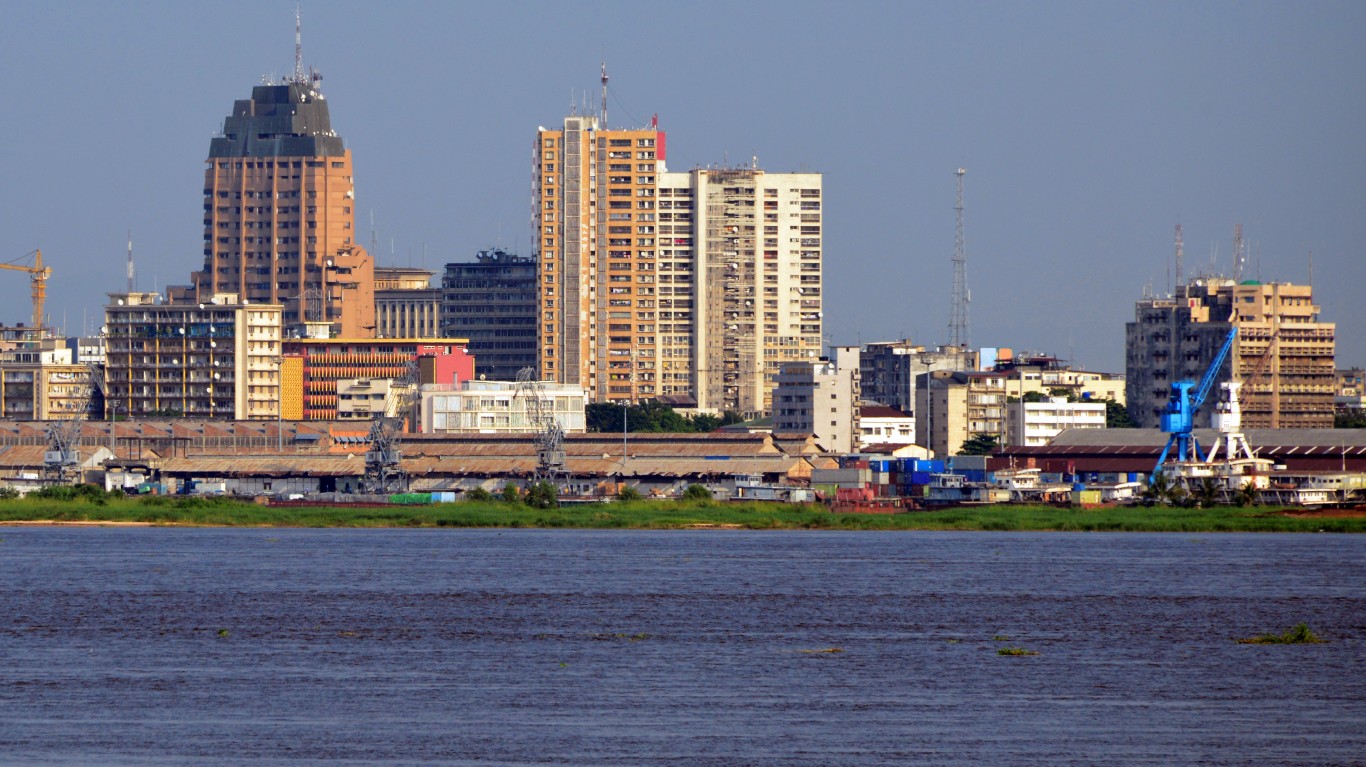
11. Democratic Republic of the Congo
> Corruption perceptions index: 19/100
> Total population: 89.56 million
> Region: Sub-Saharan Africa

10. Burundi
> Corruption perceptions index: 19/100
> Total population: 11.89 million
> Region: Sub-Saharan Africa
[in-text-ad]
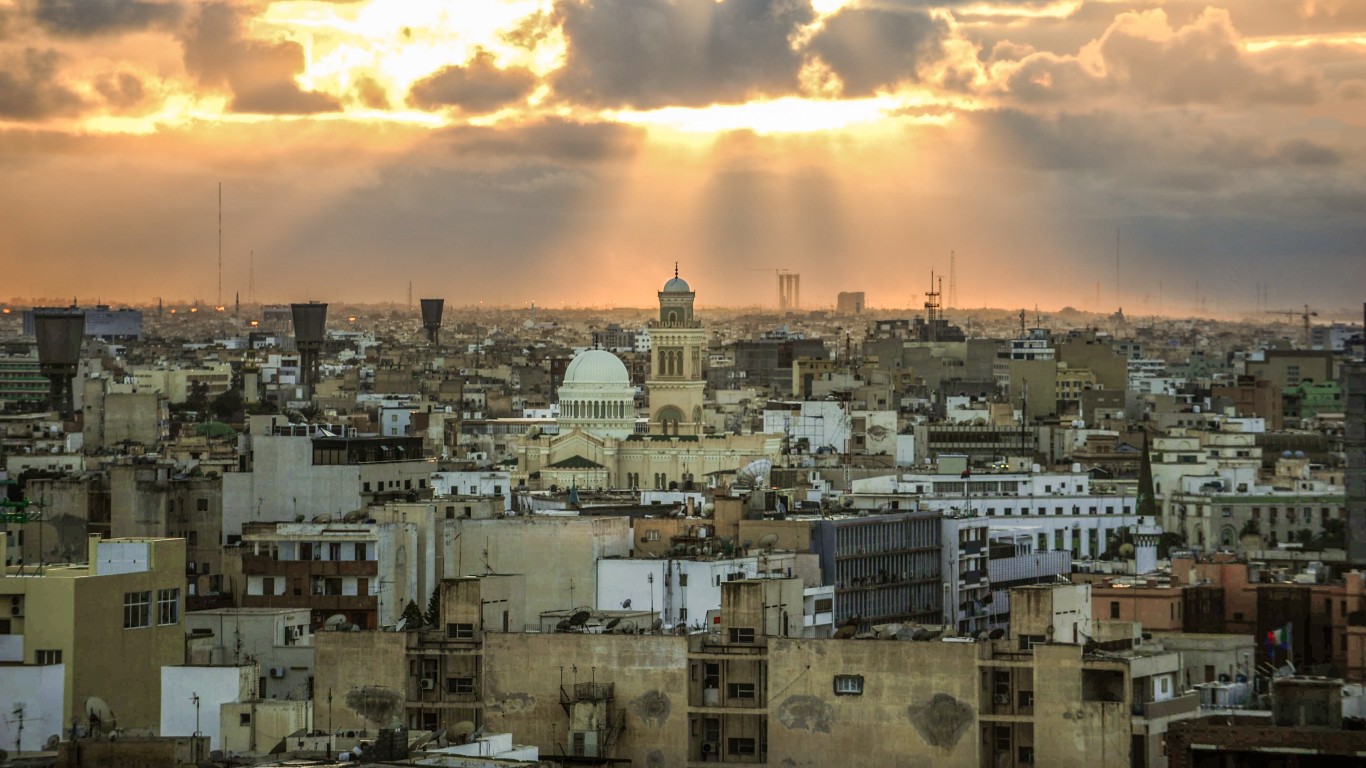
9. Libya
> Corruption perceptions index: 17/100
> Total population: 6.87 million
> Region: Middle East & North Africa

8. Equatorial Guinea
> Corruption perceptions index: 17/100
> Total population: 1.40 million
> Region: Sub-Saharan Africa
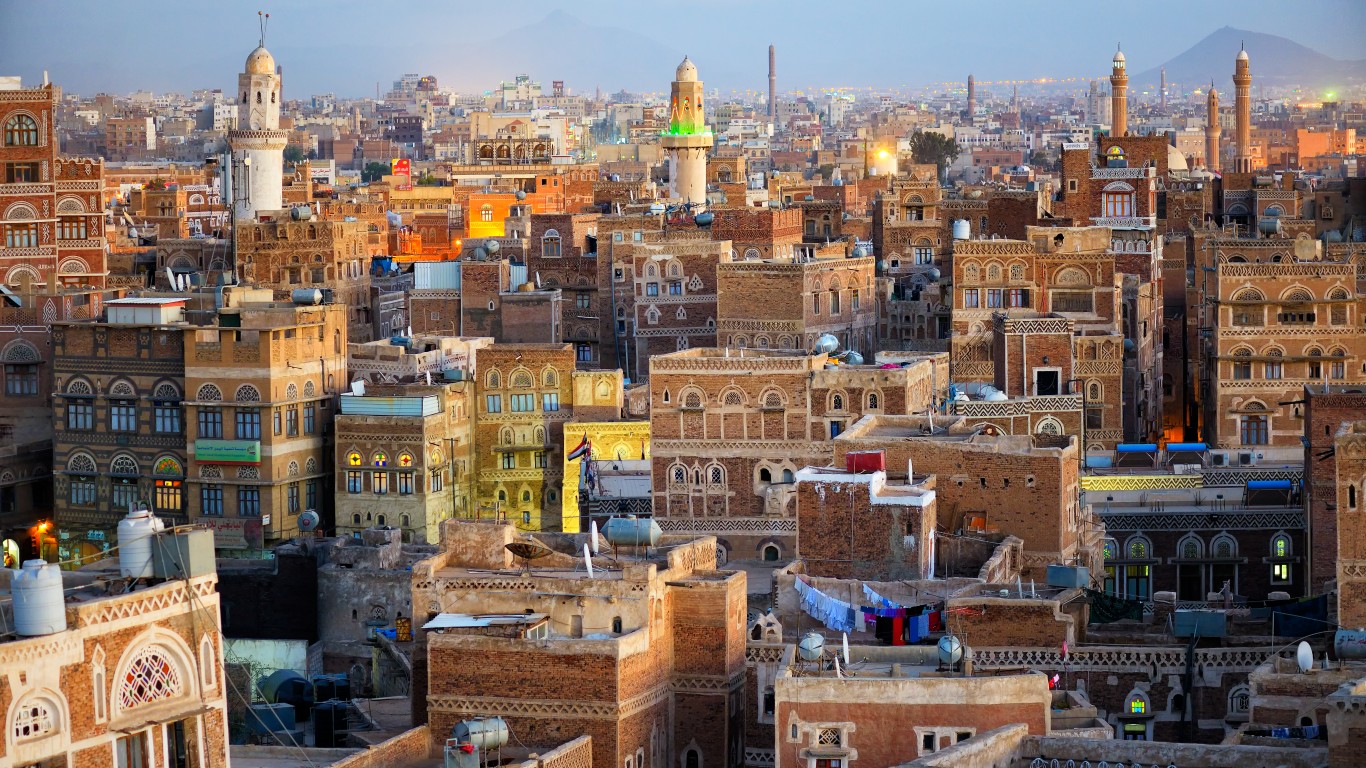
7. Yemen
> Corruption perceptions index: 16/100
> Total population: 29.83 million
> Region: Middle East & North Africa
[in-text-ad-2]
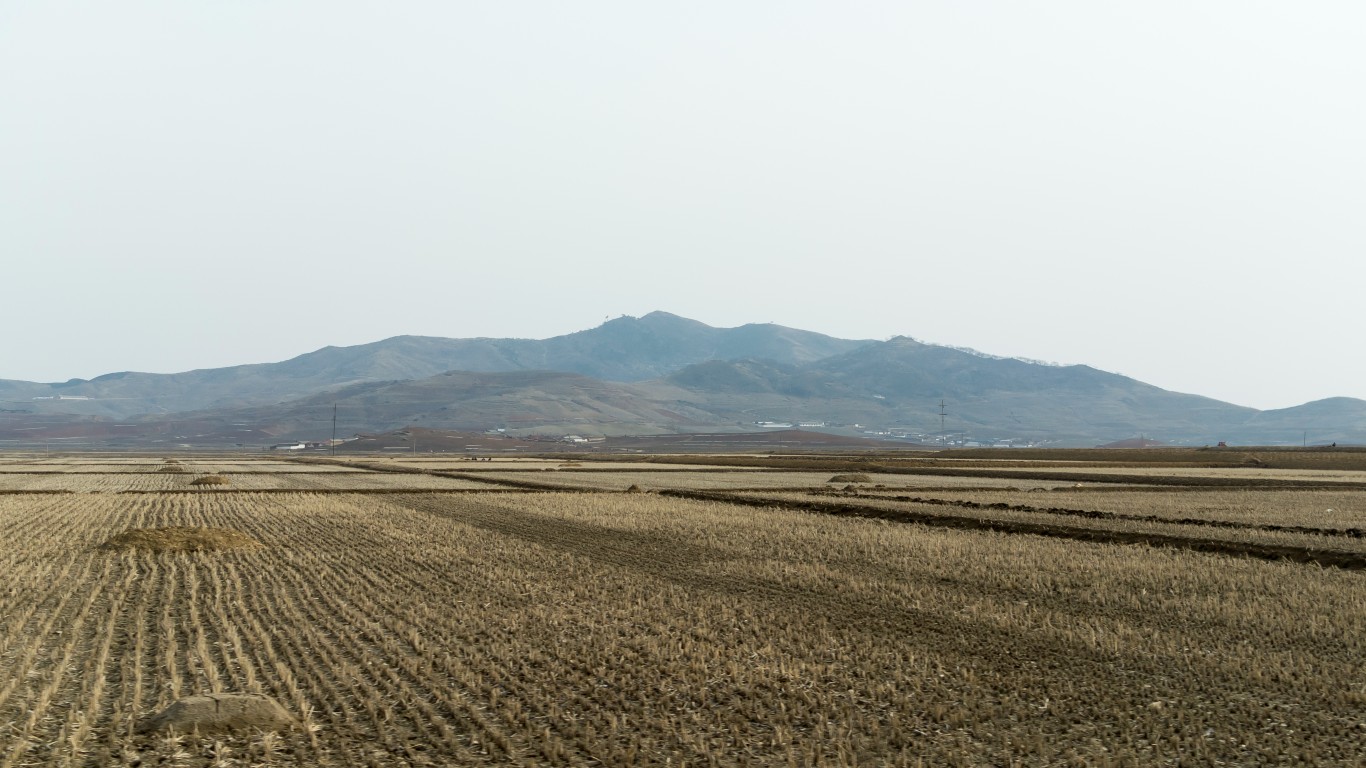
6. North Korea
> Corruption perceptions index: 16/100
> Total population: 25.78 million
> Region: Asia & the Pacific
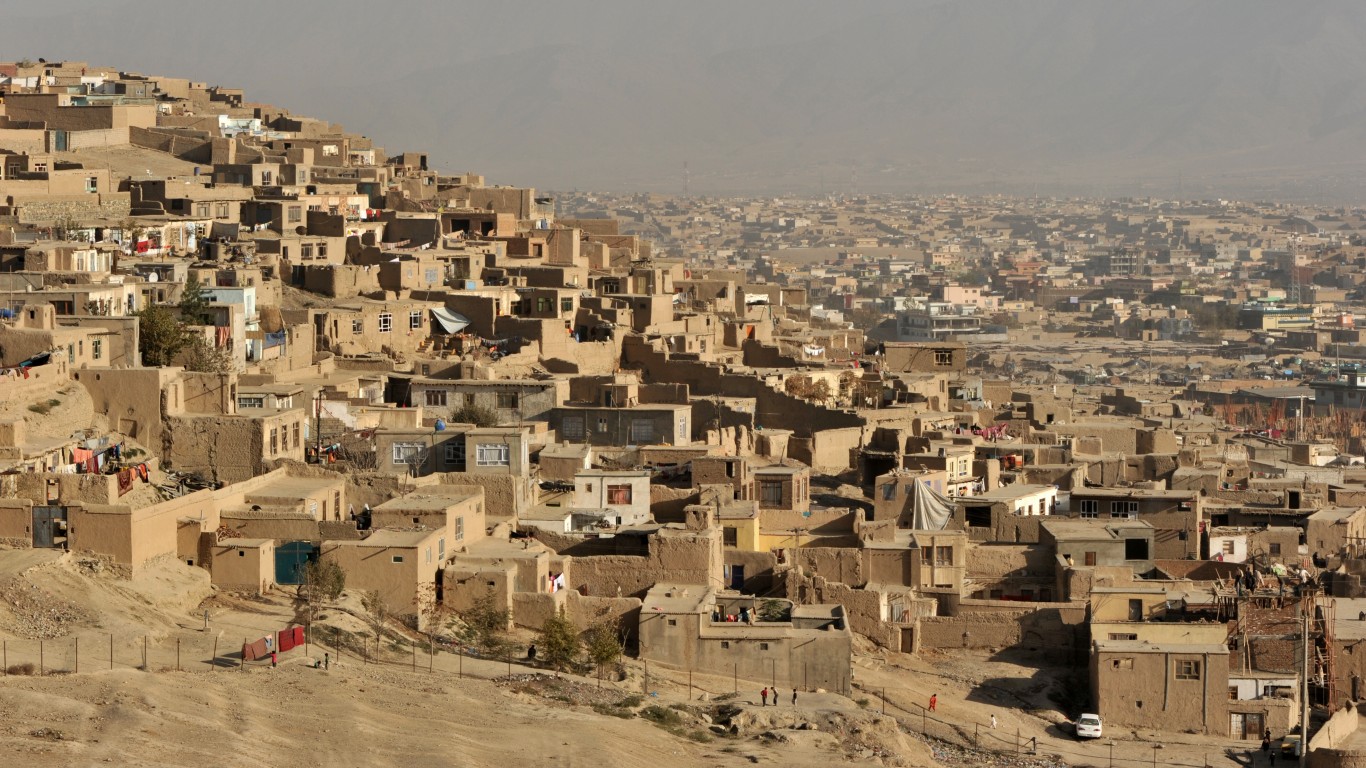
5. Afghanistan
> Corruption perceptions index: 16/100
> Total population: 38.93 million
> Region: Asia & the Pacific
[in-text-ad]

4. Venezuela
> Corruption perceptions index: 14/100
> Total population: 28.44 million
> Region: The Americas
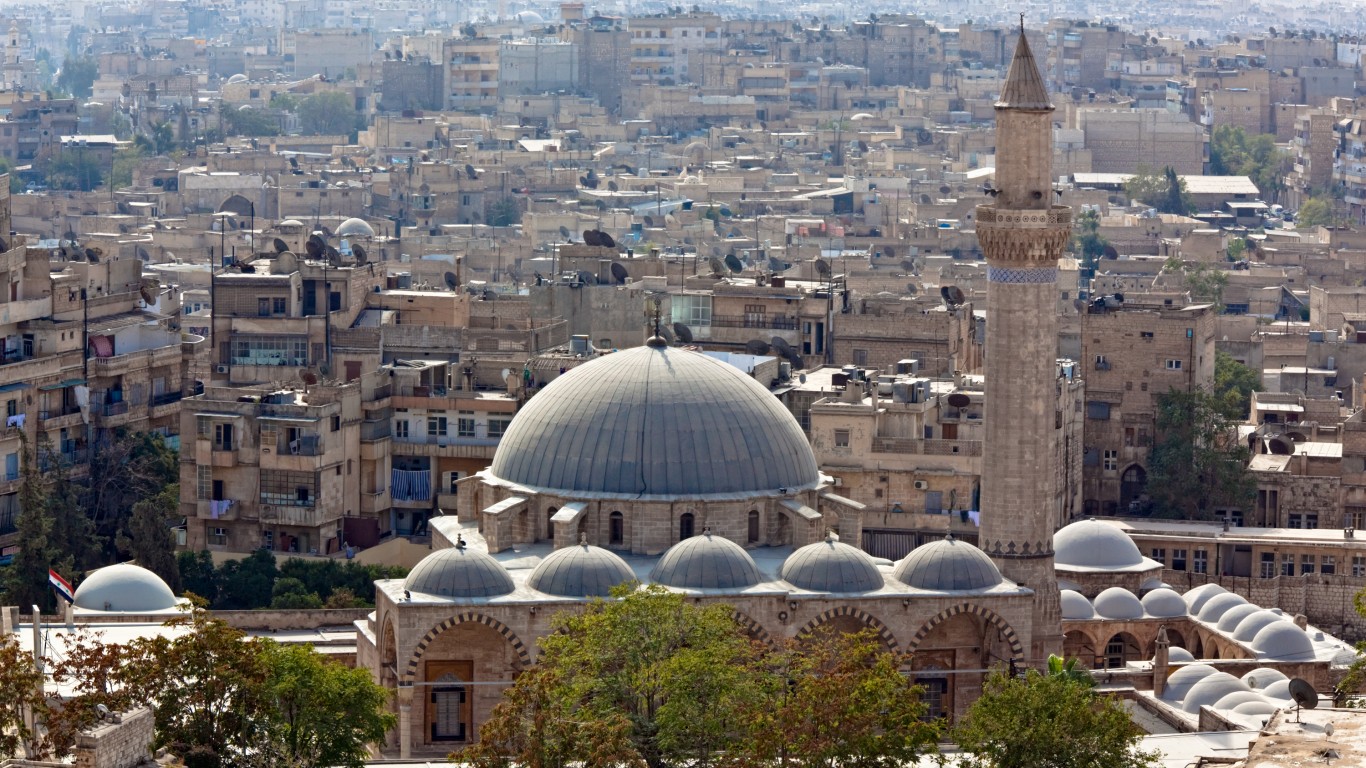
3. Syria
> Corruption perceptions index: 13/100
> Total population: 17.50 million
> Region: Middle East & North Africa
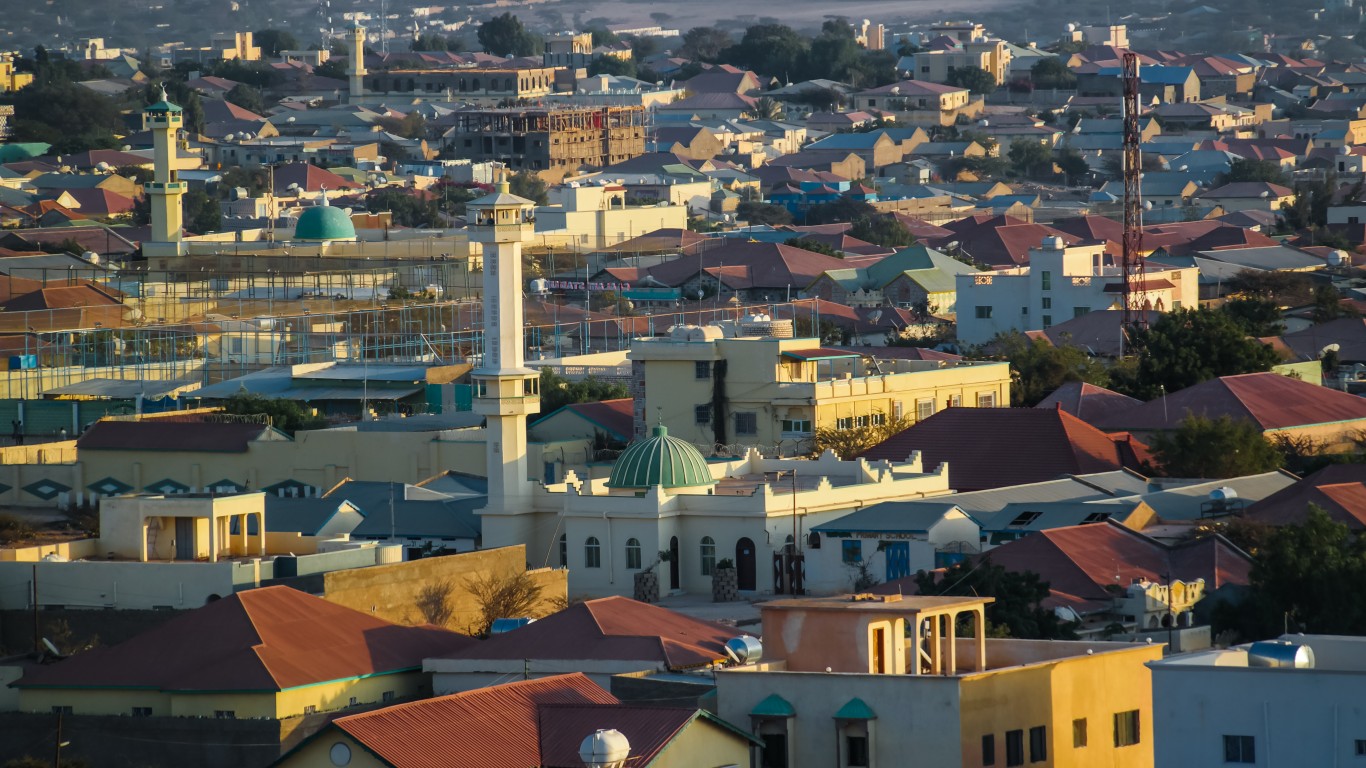
2. Somalia
> Corruption perceptions index: 13/100
> Total population: 15.89 million
> Region: Sub-Saharan Africa
[in-text-ad-2]
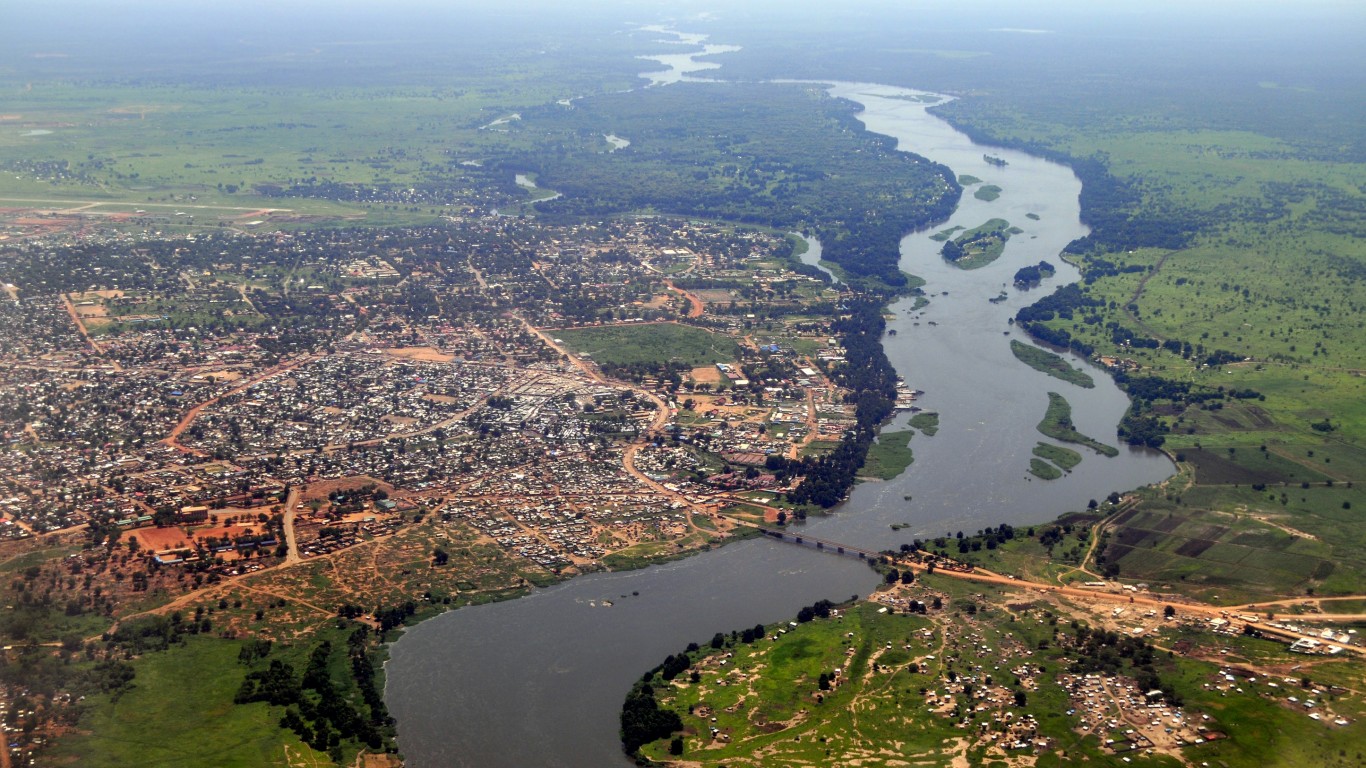
1. South Sudan
> Corruption perceptions index: 11/100
> Total population: 11.19 million
> Region: Sub-Saharan Africa
Travel Cards Are Getting Too Good To Ignore (sponsored)
Credit card companies are pulling out all the stops, with the issuers are offering insane travel rewards and perks.
We’re talking huge sign-up bonuses, points on every purchase, and benefits like lounge access, travel credits, and free hotel nights. For travelers, these rewards can add up to thousands of dollars in flights, upgrades, and luxury experiences every year.
It’s like getting paid to travel — and it’s available to qualified borrowers who know where to look.
We’ve rounded up some of the best travel credit cards on the market. Click here to see the list. Don’t miss these offers — they won’t be this good forever.
Thank you for reading! Have some feedback for us?
Contact the 24/7 Wall St. editorial team.
 24/7 Wall St.
24/7 Wall St.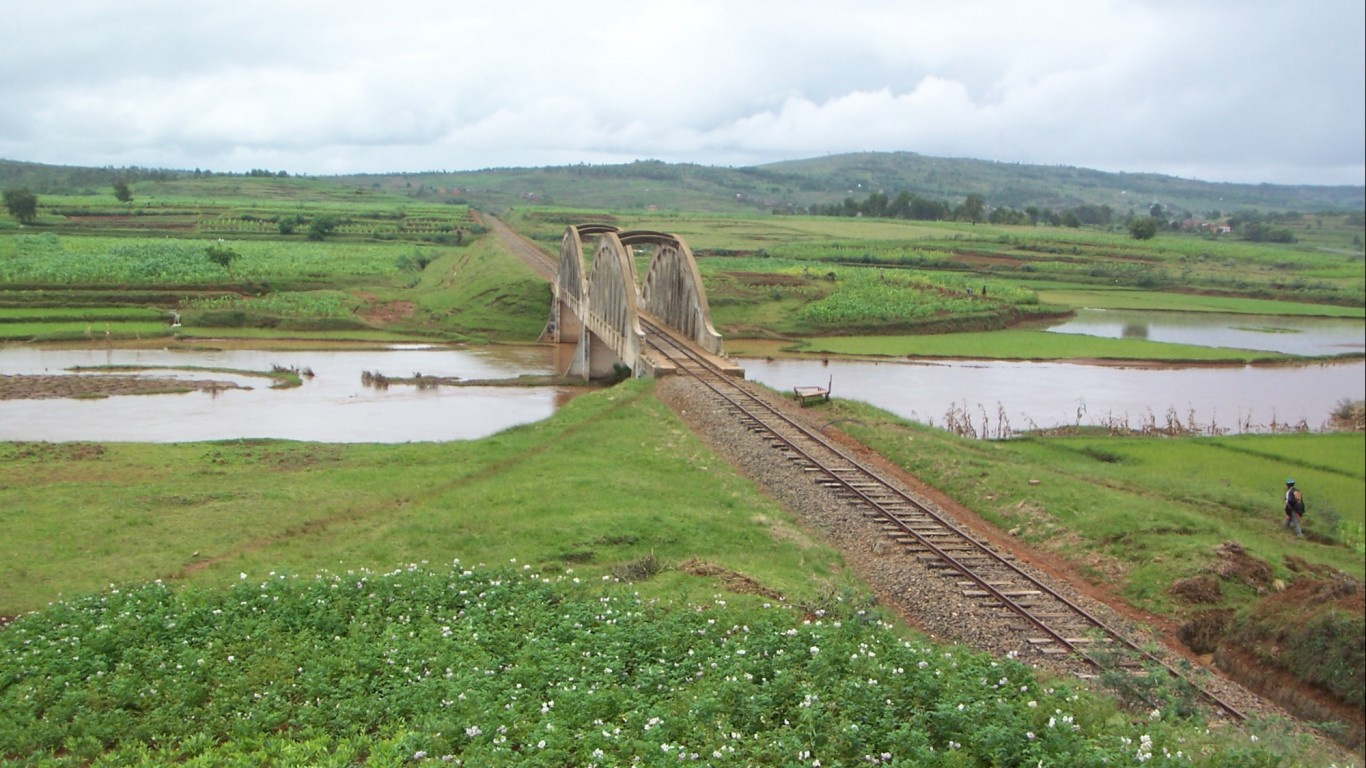
 24/7 Wall St.
24/7 Wall St. 24/7 Wall St.
24/7 Wall St.